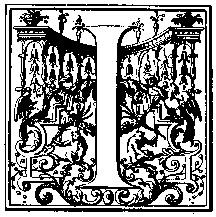Skåne
Just the other day, for example, I joined a group of academics and University visitors at a dinner party. While we were standing around at the start, I fell into conversation with a charming young woman who asked me something I didn't quite follow. Earthling, I replied, quick as a wink, I come from the depth of Sub-Space to conquer your world! She smiled vaguely at me, and I later discovered that she was Lithuanian, and knew even less Swedish than I did.
A few minutes later, our hostess began to distribute us into seats around the table in the garden. This time, I knew that she was speaking Swedish, and so I nodded and said: If Doom has done what I fear, then the entire Universe is in danger! She also looked slightly puzzled, and assigned me a position at the corner of the garden, behind a tree.
I might have felt a tiny bit left out, except that much of the evening was taken up with a series of toasts in a clear liquid which I have not experienced before. After the last toast that I can remember, I think I said Aaaargh, I am slipping back into the Negative Zone. Then again, I may have said something else entirely. By that point, to tell the truth, there were not many phrases of Marvel Comics Swedish left in my repertoire. However, after I had poured myself into a bus to return to my rented flat, I was just able to greet the bus-driver with Aha, everything goes exactly according to my plan! Fortunately, the bus-stop at my flat is the end of the line.
 hen not pursuing this line of study, I have been learning what I can about this part of Sweden. The main towns of Skåne are Lund, where I am living, and the nearby seaport of Malmö. Lund is the older settlement, founded in 1020 by King Canute. A couple of hundred years later, the Danes built the cathedral or Domkyrkan here. It was an expensive operation, and before long the Danish monarchy found itself so pressed for cash that it sold off the whole of Skåne to King Magnus the Mildewed of
Sweden for a few hundred-weight of salted herring. An interminable legal wrangle followed, which ended only when the Swedes gave back the herring, and the Danes repossessed Skåne.
hen not pursuing this line of study, I have been learning what I can about this part of Sweden. The main towns of Skåne are Lund, where I am living, and the nearby seaport of Malmö. Lund is the older settlement, founded in 1020 by King Canute. A couple of hundred years later, the Danes built the cathedral or Domkyrkan here. It was an expensive operation, and before long the Danish monarchy found itself so pressed for cash that it sold off the whole of Skåne to King Magnus the Mildewed of
Sweden for a few hundred-weight of salted herring. An interminable legal wrangle followed, which ended only when the Swedes gave back the herring, and the Danes repossessed Skåne.
After that, there was the Union of Kalmar, in which Denmark and Sweden merged, followed by the inevitable messy divorce which went on for 200 years, and then in rapid succession the Black Death, the Northern War, the Reformation, and the invention of aquavit.
Next, the engineers of king Gustav Adolf the Addled invented fearsome new military techniques, such as mobile artillery which fired a devastating sauce made of fermented herring. With these weapons, Sweden became the major imperial power of The North in the 17th century, and even conquered Livonia and Pomerania. (Both of these places no longer exist, you will observe, but if they did they would harbor fond memories of "the good old Swedish times", or so people here believe.)
Soon after, Sweden scored a famous victory over its traditional enemy Denmark. The Swedish king Karl the Clammy achieved the element of surprise by bringing his army to the backside of Copenhagen by bus --- nobody had noticed when a travel agent in Stockholm purchased 30,000 round-trip tickets --- and laid siege to the capital. The Danes hurriedly capitulated, so that the trouble would be over before the next tour-group arrived, and ceded Skåne back to Sweden again.
The Skånians, by this time thoroughly confused, responded by putting the Social Democrats in charge of Malmö, where they have remained in charge ever since. Opponents regularly attack the Social Democrats as still being in the middle ages, and there is some truth in this. At the big May Day parade in Malmö, I noticed that all the people carrying Social Democrat banners were middle-aged, if not older. They were undoubtedly SD party stalwarts of long standing, and probably had fond personal memories of the 17th century.
The parade took half an hour to pass through Gustav Adolfs Torget, a relaxed, good-humoured crowd of working people of all ages. It had a good feeling about it. They strolled along in between more formal elements, namely marching bands and flag-bearers who apparently represented different shops or unions. Every so often, there was a pair of mounted police riding huge, handsome horses. Prime minister Goran Persson, who hails from Malmö, joined the festivities, I am told --- although I didn't recognize him specifically among the marchers. So in Malmö, as the parade demonstrated, unions and the Social Democrats are part of the establishment. This of course strikes an American as like something from another planet, pure science-fiction.
Social Democracy in this part of the world has roots not only in the workers' movement, but in the coöperative movement and in an old-fashioned, communitarian ethos of the whole nation as a family. It was summed up by the Social Democrats of the last generation, and the one before that, in the word folkhemmet, meaning "the people's home." "In the people's home," the SD leader Per Albin Hanson used to say in the 20s and 30s, "there are neither favorites nor step-children." This conception of society led to a high standard of public provision, under governments dominated by the Social Democrats for most of the last three generations.
 have long felt rather moved by the idea of "the people's home," coming as I do from a place where thousands of step-children sleep in the streets, and in which social "dynamism" is conventionally defined in terms of a wealth differential of a million-fold, or better yet a billion-fold,
between favorites and step-children. Proponents of this system --- which one
might name banana Republicanism --- claim that it fosters creativity. Sure
enough, the USA has indeed created products that northern Europe never
even imagined, such as Coca-Cola, the sports utility vehicle, the barca-lounger, Microsoft Windows, and George W. Bush. I guess it's a question of how you define "dynamism" or "creativity."
have long felt rather moved by the idea of "the people's home," coming as I do from a place where thousands of step-children sleep in the streets, and in which social "dynamism" is conventionally defined in terms of a wealth differential of a million-fold, or better yet a billion-fold,
between favorites and step-children. Proponents of this system --- which one
might name banana Republicanism --- claim that it fosters creativity. Sure
enough, the USA has indeed created products that northern Europe never
even imagined, such as Coca-Cola, the sports utility vehicle, the barca-lounger, Microsoft Windows, and George W. Bush. I guess it's a question of how you define "dynamism" or "creativity."
However, there are signs in Sweden that the social solidarity implicit in folkhemmet has been fraying in recent years. The most conspicuous sign, to my mind, is the way people treat their own public parks. Sweden has gorgeous municipal park systems (especially in Malmö), but many of them are awash in litter. The heaps of trash, paper, and beercans may even exceed American standards. Fortunately, I can report that no such littering accompanied the big May Day parade. Maybe tossing out empty beercans into the people's home is an every-day activity, but it is avoided at least on May Day.
The parade made me remember my late Norwegian friend Ottar Larsen, a retired merchant seaman and commercial fisherman, who read widely, and griped widely, in matters of politics. He was especially pissed off by pretentious American articles on how poor countries need to emulate the USA in every detail so as to accomplish the economic "takeoff into development."
Ottar grew up in Lofoten, a remote island group in the far north of Norway's coastline, where everybody was dirt-poor when he was a boy. In fact, in his recollection, everybody was dirt-poor in Norway of that time, except for a sprinkling of the very rich at the top of the social pyramid. "Ja," Ottar used to muse, "Norway was yust a real poor country back in those days." "But then," he went on, "then the Labour Party came in and --- POOF! --- we became a rich country."